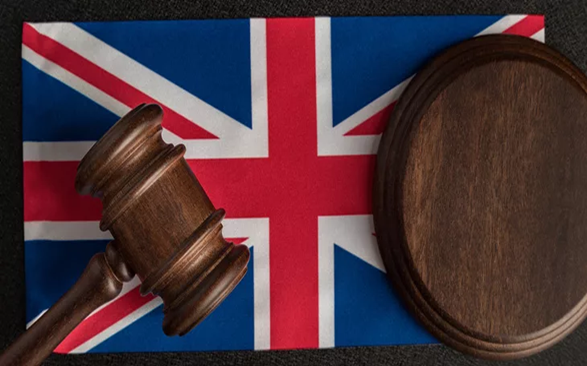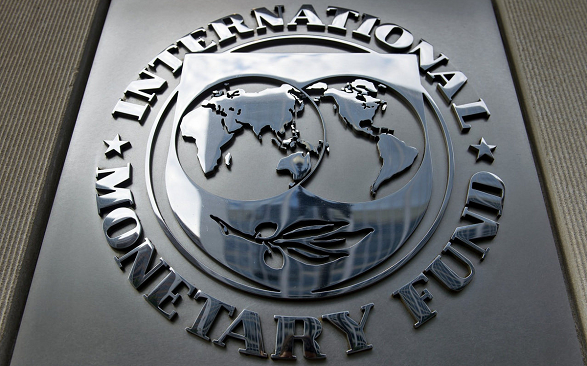by Jude Ayua
The United Kingdom government is proposing a regulatory framework for stablecoins by December 2024. On 6 November, the Bank of England (BOE) published a discussion paper which set out its proposed “framework for systemic payment systems using stablecoins and related service providers.”
Meanwhile, Former US President Donald Trump’s reelection as the 47th President of the United States of America has sparked a rising spiral in the price of major cryptocurrencies. Bitcoin initially rose from $74,466 to $76,300 on 06 November 2024, the day Trump won against Kamala Harris, and crossed $90,000 on 13 November after Trump pledged to ease regulation around the digital tokens.
The UK stablecoin legislation
The UK government is proposing a new crypto regulation that aims to give it competitive edge in the global digital assets market. This move is reportedly in response to US President Donald Trump’s promise to make the US “the crypto capital of the world” which has attracted more crypto investors.
The BOE published its discussion paper earlier cited alongside a discussion paper from the Financial Conduct Authority (FCA) on its regulatory approach to stablecoin issuers and custodians, and a letter from the Prudential Regulation Authority (PRA) to “bank Chief Executive Officers on innovations in the use by banks of deposits, e-money and stablecoins.” The paper discusses two forms of money: ‘outside money’ and ‘inside money,’ classifying stablecoins as inside money. The proposed regulatory framework defines stablecoins as “a form of digital assets that purport to maintain a stable value relative to a fiat currency by holding assets (which may be of variable value) as backing.”
The framework’s aim is to “…support innovation in money and payments, while safeguarding risks to financial stability.” The discussion paper further stated that: “Stablecoins could be used as a new form of digital money transferring value in new payment systems. They could offer benefits as an innovative way of settling transactions that enables new services and functionality in payments.”
The Bank indicated the role of regulation in supporting financial innovations such as the use of stablecoins as a payment system: “For innovation in payments to thrive, regulation is needed to ensure it is safe and sustainable.”
“The Government has enacted legislation that will allow the Bank to regulate systemic payment systems using stablecoins, to ensure they can be used as a safe means of payment and store of value,” the paper stated. It also added that the regulatory standards proposed in the paper “focus on sterling-denominated stablecoins used in systemic payment systems for retail payments.”
The paper also promises to safeguard financial stability and the singleness of money. It explains singleness of money as all forms of money having the same value, being generally accepted as a means of payment and interchangeable without loss of value. The aim of this is to “maintain confidence in money and payments.”
The BOE’s Financial Policy Committee assessed the risks of stablecoins that could potentially become widely used as means of payments. To manage the risks, it set two expectations for systemic payment stablecoins, proposing a ‘same risk, same regulatory outcome’ approach that will potentially form a part of the proposed framework.
Read also: UK to Recognize Crypto as Personal Property.
Trump’s announcement of the launch a digital currency platform named World Liberty Financial
As President, in his first tenure, Trump introduced policies around digital assets that favored the industry and investors. For example, his administration cut down on corporate taxes that increased liquidity in the market and encouraged cryptocurrency investments.
Trump has been vocal about cryptocurrencies, investing and also encouraging Americans to invest in it. “Crypto is one of those things we have to do. Whether we like it or not, I have to do it,” Trump said on X, as quoted in a New York Times (NYT) report. A day after his attempted assassination, Trump announced in a livestream that he, alongside his sons, Donald Trump Jr. and Eric Trump, and entrepreneurs identified as Chase Herro and Zachary Folkman, will launch a digital currency platform named World Liberty Financial (WLF), the NYT reported on 16 September.
Trump and his sons said during the livestream that “crypto would transform the financial system.”
A white paper for the WLF indicates that the platform would introduce a new cryptocurrency, $WLFI, which it would offer to the public. The WLF also posted on its official X account that its mission is to “Make crypto and America great by driving the mass adoption of stablecoins and decentralized finance.” The post added, “We believe that DeFi is the future, and we’re committed to making it accessible and secure for everyone.”
Trump’s campaign promises for crypto
During his campaign for the 2024 presidential race, Trump made a bold move by using bitcoin to pay for burgers he bought for his supporters at a restaurant in New York, an act which proved his support for digital assets. Trump also made promises to the crypto community during his campaign, which attracted more investors to the market. Some of his promises include:
- Making the US the “crypto capital of the planet and the Bitcoin superpower of the world,” by establishing the nation’s first strategic Bitcoin stockpile. Trump said this at the Bitcoin 2024 conference in Nashville Tennessee. “If Bitcoin is going to the moon, as they say, ‘it’s going to the moon,’ I want America to be the nation that leads the way.”
- Integrating Bitcoin into the national financial strategy through a “strategic Bitcoin reserve.” So far, the BITCOIN Act of 2024, a bill proposed by Senator Cynthia Lummis (R-WY) is set to make Trump’s promise a reality. The bill mandates the Secretary of the Treasury to purchase “not more than 200,000 Bitcoins per year over a 5-year period, for a total acquisition of 1,000,000 Bitcoins.” It also mandates the transfer of all bitcoin held by Federal agencies to the Treasury.
- To ensure the U.S. takes a dominant role in Bitcoin mining. “If crypto is going to define the future, I want it to be mined, minted, and made in the USA,” Trump said at the Bitcoin conference in Nashville.
- Deregulation: Also speaking at the Bitcoin 2024 conference in Nashville, Trump pledged to end “Joe Biden’s and Kamala Harris’s anti-crypto crusade.” This includes the possibility of firing the US Securities and Exchange Commission Chairman Gary Gensler, who is renowned for his regulation-by-enforcement approach to the crypto market.
“We will have regulations, but from now on, the rules will be written by people who love your industry, not hate your industry, people that want to make it clear and simple, straightforward and fair, people that want to see your industry thrive, not dive,” Trump said.
Read also: eToro and US SEC settlement: Takeaways for digital assets operators.
The crypto industry responds.
Traders, investors, and leaders in the crypto industry are betting on Trump’s promises of regulation for digital assets, which they believe will propel the industry toward growth.
“We have seen basically what people are calling the ‘Trump Pump,’” said Robinhood CEO Vlad Tenev, as quoted by CNBC on MSN.
“There’s widespread optimism that the Trump administration, which has stated that they wish to embrace cryptocurrencies and make America the center of cryptocurrency innovation worldwide, is going to have a much more forward-looking policy towards this new industry,” Tenev added.
Similarly, Coinbase CEO Brian Armstrong noted:
“I think we finally have a chance to get some regulatory [clarity] in the U.S. about some of these big open issues that frankly, under Gary Gensler, we just haven’t gotten any clarity for a long time.”
“The new political landscape may bring clearer regulations for crypto assets and could prompt strategic developments, such as a national bitcoin reserve and growth in the mining sector,” Carl Szantyr, managing partner of Blockstone Capital, told Reuters.
Read also: South Africa mandates crypto platforms to collect user data.
The UK’s crypto market advantage
The UK’s proposed framework for stablecoins aligns with its effort to retain crypto firms and investors in the UK and promote domestic growth in the market. With this regulatory move, the UK looks to reassure existing firms about opportunities within the country and attract potential ones.
In addition to the proposed stablecoin legislation, the UK introduced the Property (Digital Assets etc) Bill in September 2024 which aims to recognize bitcoin and other digital assets including cryptocurrencies and NFTs as personal property.
By protecting digital assets ownership rights and addressing risks associated with digital assets, the UK hopes to create a more secure and safe environment for crypto stakeholders. These efforts will position the UK as a major player in the global crypto market, and a strong competitor of the US market.
Read also: Refuge from the Naira: Why Nigerians are Turning to Stablecoins in an Unstable Economy
Read also: Tether (USDT) Stablecoin: Use Cases and Pros and Cons You Should Know
About the Author: Jude Ayua is a policy analyst at CAB. A lawyer, Jude is an associate at Infusion Lawyers where he is a member of the Blockchain & Virtual Assets Group. He is also a member of the Policy & Regulations Committee of the Stakeholders in Blockchain Technology Association of Nigeria (SiBAN). Jude reports and writes on crypto policy and regulations. jude@infusionlawyers.com
Discover more from Crypto Asset Buyer
Subscribe to get the latest posts sent to your email.





